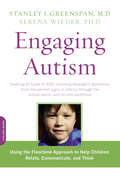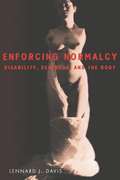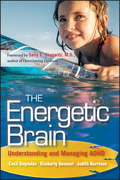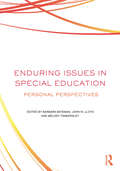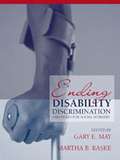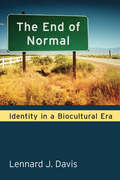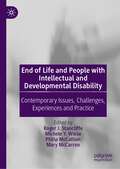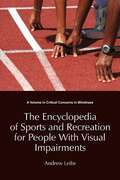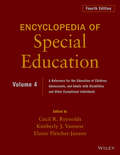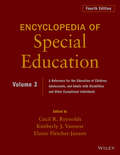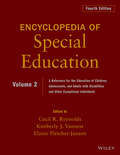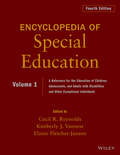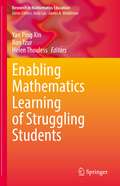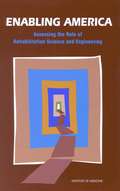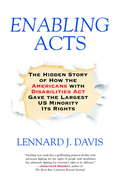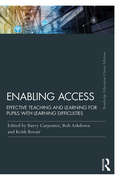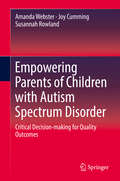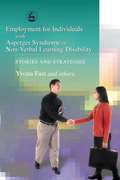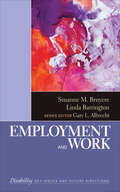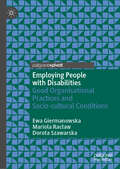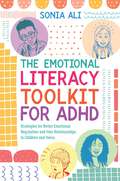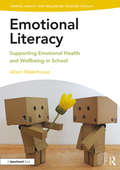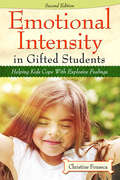- Table View
- List View
Engaging Autism: Using the Floortime Approach to Help Children Relate, Communicate, and Think (A Merloyd Lawrence Book)
by Stanley I. Greenspan Serena WiederGrateful parents and professionals worldwide have welcomed this essential guide to the highly recommended Floortime approach for treating children with any of the autism spectrum disorders (ASD). Now available in paperback, Engaging Autism includes new, exciting information on neuroscience research into the effects of this approach, plus guidance for parents navigating the controversies surrounding the treatment of autism. Unlike approaches that focus on changing specific behavior, Greenspan’s program promotes the building blocks of healthy emotional and behavioral development. He shows that, remarkably, children with ASD do not have a fixed, limited potential, and may often join their peers to lead full, psychologically healthy lives. The Floortime approach can also be applied at any age--including early infancy, when the first signs of risk for ASD may appear--so that preventing the full development of autism becomes a real possibility.
Enforcing Normalcy: Disability, Deafness, and the Body
by Lennard J. DavisThis book tries to think through some of the complex issues raised by concepts such as the body, the normal, the abnormal, disability, the disabled, and people with disabilities. I wrote this book because I believe deeply that people with disabilities, Deaf people, and others who might not even consider themselves as having a disability have been relegated to the margins by the very people who have celebrated and championed the emergence of multiculturalism, class consciousness, feminism, and queer studies from the margins.
The Energetic Brain
by Cecil R. Reynolds Sally E. Shaywitz Kimberly J. Vannest Judith R. HarrisonHow to get past the myths, tap into the creativity of the ADHD mind, and thriveADHD affects millions of people-some 3 to 5% of the general population. Written by a neuroscientist who has studied ADHD, a clinician who has diagnosed and treated it for 30 years, and a special educator who sees it daily, The Energetic Brain provides the latest information from neuroscience on how the ADHD brain works and shows how to harness its potential for success. It distills the latest research findings to give readers the most up-to-date information available and provides practical strategies for managing ADHD-and thriving-at school, at work, and at home, from childhood through adulthood. Debunks popular (and destructive) myths about ADHDCovers how to manage ADHD with medication or without, what parents can do to help, and how to thrive with ADHD throughout the lifespanOffers effective academic and behavioral interventions for school, and helpful accommodations for the workplaceThe Energetic Brain provides a truly thorough view of ADHD, making it an invaluable guide for parents, teachers, and those living with ADHD.
Enduring Issues In Special Education: Personal Perspectives
by Barbara Bateman John Wills Lloyd Melody TankersleyEnduring Issues in Special Education is aimed at any course in the undergraduate or graduate special education curriculum that is wholly or partly devoted to a critical examination of current issues in special education. The book organizes 28 chapters into seven sections using familiar structuring principles—what, who, where, how, when, why, and whither. Each section begins with an introduction that provides historical, legal, and theoretical background information and organizing commentary for the chapters that follow. The book’s objective, in addition to informing readers about the issues, is to develop critical thinking skills in the context of special education. Key features include the following: Dialectic Format – Each of the 28 chapters presents compelling reasons for addressing the issue at hand and specific ways to do so. Because each issue is written from different perspectives and focuses on a variety of aspects, readers are encouraged to weigh the arguments, seek additional information, and come up with synthesized positions of their own. Organizing Framework – The book’s seven sections have been arranged according to a scheme that is the essence of most investigative reporting and provides a coherent, easy-to-understand framework for readers. Expertise – All chapters are written by leading scholars who are highly regarded experts in their fields and conclude with suggested readings and discussion questions for additional study.
Ending Disability Discrimination: Strategies For Social Workers
by Gary E. May Martha B. RaskeEnding Disability Discrimination defines disability as a social construction, not as an immutable physical limitation, and gives social work students and practitioners a model that can be used to transform how people with disabilities are treated.
The End of Normal: Identity in a Biocultural Era
by Lennard DavisIn an era when human lives are increasingly measured and weighed in relation to the medical and scientific, notions of what is "normal" have changed drastically. While it is no longer useful to think of a person's particular race, gender, sexual orientation, or choice as "normal," the concept continues to haunt us in other ways. In The End of Normal, Lennard J. Davis explores changing perceptions of body and mind in social, cultural, and political life as the twenty-first century unfolds. The book's provocative essays mine the worlds of advertising, film, literature, and the visual arts as they consider issues of disability, depression, physician-assisted suicide, medical diagnosis, transgender, and other identities. Using contemporary discussions of biopower and biopolitics, Davis focuses on social and cultural production--particularly on issues around the different body and mind. The End of Normal seeks an analysis that works comfortably in the intersection between science, medicine, technology, and culture, and will appeal to those interested in cultural studies, bodily practices, disability, science and medical studies, feminist materialism, psychiatry, and psychology.
End of Life and People with Intellectual and Developmental Disability: Contemporary Issues, Challenges, Experiences and Practice
by Roger J. Stancliffe Michele Y. Wiese Philip McCallion Mary McCarronThis book on end of life examines how to include people with intellectual and developmental disability in the inevitability of dying and death. Comprising 17 chapters, it addresses challenging and under-researched topics including suicide, do-not-resuscitate, advance care planning, death doulas and accessible funerals. Topics reflect everyday community, palliative care, hospice and disability services.The book proposes that the rights of people with disabilities should be supported up to and after their death. Going beyond problem identification, the chapters offer positive, evidence-supported responses that translate research to practice, together with practice examples and resources grounded in lived experience. The book is applicable to readers from the disability field, and mainstream health professionals who assist people with disability in emergency care, palliative care or end-of-life planning
The Encyclopedia of Sports and Recreation for People With Visual Impairments
by Andrew LeibsNot long ago, most blind and visually impaired people grew up without ever playing sports; they sat on the sidelines, and kept score during gym-protected rather than included. In the 1980s, few people had ever heard of the Paralympic Games or accessible recreation. <P> Today, promising blind athletes can receive residency at the US Olympic Training Center; runners compete for prize money and national championships, and most ski resorts offer adaptive programs throughout the year where blind people can ski, cycle, and kayak-often for free. The Paralympic movement, the Americans with Disabilities Act of 1990, and ever-increasing expectation for inclusion among the disabled have inspired an explosion of accessible sports, fitness, and recreation programs that accommodate the blind. <P> The Encyclopedia of Sports & Recreation for People with Visual Impairments is the first consumer- focused, action-oriented guide to this new world of accessible activity, profiling the people, programs, and products that are helping move blind and visually impaired people from the sidelines into the game. This groundbreaking guide profiles every accessible blind sport and recreation activity with entries that outline how athletes (both novice and elite) got involved in the sport and how participation has shaped their life. The book also profiles major blind sports organizations and includes chapter and resource listings on camps and accessible recreation providers. Through this book, blind people will be inspired to embrace sports as the rest of society does-as a vital component of personal expression and human interaction that opens paths to adventure,
Encyclopedia of Special Education, Volume 4: A Reference for the Education of Children, Adolescents, and Adults Disabilities and Other Exceptional Individuals
by Cecil R. Reynolds Kimberly J. Vannest Elaine Fletcher-JanzenThe only comprehensive reference devoted to special education The highly acclaimed Encyclopedia of Special Education addresses issues of importance ranging from theory to practice and is a critical reference for researchers as well as those working in the special education field. This completely updated and comprehensive A-Z reference includes about 200 new entries, with increased attention given to those topics that have grown in importance since the publication of the third edition, such as technology, service delivery policies, international issues, neuropsychology, and RTI. The latest editions of assessment instruments frequently administered in special education settings are discussed. Only encyclopedia or comprehensive reference devoted to special education Edited and written by leading researchers and scholars in the field New edition includes over 200 more entries than previous edition, with increased attention given to those topics that have grown in importance since the publication of the third edition—such as technology, service delivery policies, international issues, neuropsychology, and Response to Intervention, Positive Behavioral Interventions and Supports (PBIS), Autism and Applied Behavior Analysis Entries will be updated to cover the latest editions of the assessment instruments frequently administered in special education settings Includes an international list of authors and descriptions of special education in 35 countries Includes technology and legal updates to reflect a rapidly changing environment Comprehensive and thoroughly up to date, this is the essential, A-Z compilation of authoritative information on the education of those with special needs.
Encyclopedia of Special Education, Volume 3: A Reference for the Education of Children, Adolescents, and Adults Disabilities and Other Exceptional Individuals
by Cecil R. Reynolds Kimberly J. Vannest Elaine Fletcher-JanzenThe only comprehensive reference devoted to special education The highly acclaimed Encyclopedia of Special Education addresses issues of importance ranging from theory to practice and is a critical reference for researchers as well as those working in the special education field. This completely updated and comprehensive A-Z reference includes about 200 new entries, with increased attention given to those topics that have grown in importance since the publication of the third edition, such as technology, service delivery policies, international issues, neuropsychology, and RTI. The latest editions of assessment instruments frequently administered in special education settings are discussed. Only encyclopedia or comprehensive reference devoted to special education Edited and written by leading researchers and scholars in the field New edition includes over 200 more entries than previous edition, with increased attention given to those topics that have grown in importance since the publication of the third edition—such as technology, service delivery policies, international issues, neuropsychology, and Response to Intervention, Positive Behavioral Interventions and Supports (PBIS), Autism and Applied Behavior Analysis Entries will be updated to cover the latest editions of the assessment instruments frequently administered in special education settings Includes an international list of authors and descriptions of special education in 35 countries Includes technology and legal updates to reflect a rapidly changing environment Comprehensive and thoroughly up to date, this is the essential, A-Z compilation of authoritative information on the education of those with special needs.
Encyclopedia of Special Education, Volume 2: A Reference for the Education of Children, Adolescents, and Adults Disabilities and Other Exceptional Individuals
by Cecil R. Reynolds Kimberly J. Vannest Elaine Fletcher-JanzenThe only comprehensive reference devoted to special education The highly acclaimed Encyclopedia of Special Education addresses issues of importance ranging from theory to practice and is a critical reference for researchers as well as those working in the special education field. This completely updated and comprehensive A-Z reference includes about 200 new entries, with increased attention given to those topics that have grown in importance since the publication of the third edition, such as technology, service delivery policies, international issues, neuropsychology, and RTI. The latest editions of assessment instruments frequently administered in special education settings are discussed. Only encyclopedia or comprehensive reference devoted to special education Edited and written by leading researchers and scholars in the field New edition includes over 200 more entries than previous edition, with increased attention given to those topics that have grown in importance since the publication of the third edition—such as technology, service delivery policies, international issues, neuropsychology, and Response to Intervention, Positive Behavioral Interventions and Supports (PBIS), Autism and Applied Behavior Analysis Entries will be updated to cover the latest editions of the assessment instruments frequently administered in special education settings Includes an international list of authors and descriptions of special education in 35 countries Includes technology and legal updates to reflect a rapidly changing environment Comprehensive and thoroughly up to date, this is the essential, A-Z compilation of authoritative information on the education of those with special needs.
Encyclopedia of Special Education, Volume 1: A Reference for the Education of Children, Adolescents, and Adults Disabilities and Other Exceptional Individuals
by Cecil R. Reynolds Kimberly J. Vannest Elaine Fletcher-JanzenThe only comprehensive reference devoted to special education The highly acclaimed Encyclopedia of Special Education addresses issues of importance ranging from theory to practice and is a critical reference for researchers as well as those working in the special education field. This completely updated and comprehensive A-Z reference includes about 200 new entries, with increased attention given to those topics that have grown in importance since the publication of the third edition, such as technology, service delivery policies, international issues, neuropsychology, and RTI. The latest editions of assessment instruments frequently administered in special education settings are discussed. Only encyclopedia or comprehensive reference devoted to special education Edited and written by leading researchers and scholars in the field New edition includes over 200 more entries than previous edition, with increased attention given to those topics that have grown in importance since the publication of the third edition—such as technology, service delivery policies, international issues, neuropsychology, and Response to Intervention, Positive Behavioral Interventions and Supports (PBIS), Autism and Applied Behavior Analysis Entries will be updated to cover the latest editions of the assessment instruments frequently administered in special education settings Includes an international list of authors and descriptions of special education in 35 countries Includes technology and legal updates to reflect a rapidly changing environment Comprehensive and thoroughly up to date, this is the essential, A-Z compilation of authoritative information on the education of those with special needs.
Enabling Romance: A Guide to Love, Sex, and Relationships For People With Disabilities
by Ken Kroll Erica KleinThe first comprehensive, practical guide to relationships for the physically challenged. Offers complete information on the social, romantic, and sexual requirements posed by a wide range of disabilities.
Enabling Mathematics Learning of Struggling Students (Research in Mathematics Education)
by Yan Ping Xin Ron Tzur Helen ThoulessThis book provides prospective and practicing teachers with research insights into the mathematical difficulties of students with learning disabilities and classroom practices that address these difficulties. This linkage between research and practice celebrates teachers as learners of their own students’ mathematical thinking, thus contributing an alternative view of mathematical progression in which students are taught conceptually. The research-based volume presents a unique collaboration among researchers in special education, psychology, and mathematics education from around the world. It reflects an ongoing work by members of the International Group for the Psychology of Mathematics Education (PME) and the North American Chapter of the PME Working Groups. The authors of chapters in this book, who have been collaborating extensively over the past 7 years, are from Australia, Canada, the United Kingdom, and the United States.
Enabling America: Assessing the Role of Rehabilitation Science and Engineering
by Edward N. Brandt Andrew M. PopeThe most recent high-profile advocate for Americans with disabilities, actor Christopher Reeve, has highlighted for the public the economic and social costs of disability and the importance of rehabilitation. Enabling America is a major analysis of the field of rehabilitation science and engineering. The book explains how to achieve recognition for this evolving field of study, how to set priorities, and how to improve the organization and administration of the numerous federal research programs in this area.The committee introduces the "enabling-disability process" model, which enhances the concepts of disability and rehabilitation, and reviews what is known and what research priorities are emerging in the areas of: Pathology and impairment, including differences between children and adults. Functional limitations--in a person's ability to eat or walk, for example. Disability as the interaction between a person's pathologies, impairments, and functional limitations and the surrounding physical and social environments. This landmark volume will be of special interest to anyone involved in rehabilitation science and engineering: federal policymakers, rehabilitation practitioners and administrators, researchers, and advocates for persons with disabilities.
Enabling Acts
by Lennard J. Davis<P>The first significant book on the history and impact of the ADA--the "eyes on the prize" moment for disability rights. <P>The Americans with Disabilities Act (ADA) is the widest-ranging and most comprehensive piece of civil rights legislation ever passed in the United States, and it has become the model for disability-based laws around the world. Yet the surprising story behind how the bill came to be is little known. <P>In this riveting account, acclaimed disability scholar Lennard J. Davis delivers the first behind-the-scenes and on-the-ground narrative of how a band of leftist Berkeley hippies managed to make an alliance with upper-crust, conservative Republicans to bring about a truly bipartisan bill. <P>Based on extensive interviews with all the major players involved including legislators and activists, Davis recreates the dramatic tension of a story that is anything but a dry account of bills and speeches. Rather, it's filled with one indefatigable character after another, culminating in explosive moments when the hidden army of the disability community stages scenes like the iconic "Capitol Crawl" or an event some describe as "deaf Selma," when students stormed Gallaudet University demanding a "Deaf President Now!" <P>From inside the offices of newly formed disability groups to secret breakfast meetings surreptitiously held outside the White House grounds, here we meet countless unsung characters, including political heavyweights and disability advocates on the front lines. "You want to fight?" an angered Ted Kennedy would shout in an upstairs room at the Capitol while negotiating the final details of the ADA. Congressman Tony Coelho, whose parents once thought him to be possessed by the devil because of his epilepsy, later became the bill's primary sponsor. There's Justin Dart, adorned in disability power buttons and his signature cowboy hat, who took to the road canvassing fifty states, and people like Patrisha Wright, also known as "The General," Arlene Myerson or "the brains," "architect" Bob Funk, and visionary Mary Lou Breslin, who left the hippie highlands of the West to pursue equal rights in the marble halls of DC. <P>Published for the twenty-fifth anniversary of the ADA, Enabling Acts promises to ignite readers in a discussion of disability rights by documenting this "eyes on the prize" moment for tens of millions of American citizens.
Enabling Access: Effective Teaching and Learning for Pupils with Learning Difficulties
by Barry Carpenter Rob Ashdown Keith BovairThis Routledge Classic Edition brings together widely experienced editors and contributors to show how access to a whole school curriculum can be provided for learners with moderate to profound and multiple learning difficulties. Along with a new appraisal of the contents from the editors, the contributors raise debates, illustrate effective teaching ideas and discuss strategies for providing a high-quality education for these pupils and a celebration of their achievements. The book also discusses the active involvement of family members and the learners themselves in these processes and considers issues surrounding empowerment of learners, professional development of the workforce and curriculum principles such as differentiation, personalisation, and engagement. Winner of the prestigious nasen/TES Academic Book Award in 1996, Enabling Access is an essential read for students and lecturers in higher education, and for teachers, support staff, and other professionals in all educational settings in the UK and abroad catering for these learners.
Empowering Parents of Children with Autism Spectrum Disorder
by Amanda Webster Joy Cumming Susannah RowlandThis book presents an international research-based framework that has empowered parents of children with autism spectrum disorder (ASD) to become critical decision makers to actively guide their child's learning and self-advocacy. Parents can use this framework to identify their child's vision and dreams, and to work with educators and service providers to establish specific learning goals and to implement effective interventions and programs that enable their child to achieve those goals and realise their vision for the future. The book begins by reviewing available research on evidence-based practice for children with ASD and outlining the Cycle of Learning decision-making framework for parents and professionals. Throughout the remainder of the book, case studies are presented to illustrate the ways in which different parents have successfully utilised this framework to develop effective plans for their child and to advocate for learning and education programs for both their child and other children with ASD in school and community settings. In addition, it highlights concrete examples of how parents have used the framework to empower their children with ASD to develop their self-awareness and self-determination, and to be able to self-advocate as they move through adolescence and into adult life.
Employment for Individuals with Asperger Syndrome or Non-Verbal Learning Disability: Stories and Strategies
by Yvona FastMost people with Non-Verbal Learning Disorder (NLD) or Asperger Syndrome (AS) are underemployed. This book sets out to change this. With practical and technical advice on everything from job hunting to interview techniques, from 'fitting in' in the workplace to whether or not to disclose a diagnosis, this book guides people with NLD or AS successfully through the employment mine field. There is also information for employers, agencies and careers counsellors on AS and NLD as 'invisible' disabilities, including an analysis of the typical strengths of somebody with NLD or AS, and how to use these positively in the workplace. Practical information and lists of career resources are supported by numerous case studies to inspire and advise. An essential resource for people with NLD or AS seeking or in employment and their existing or potential employers.
Employment and Work
by Susanne Marie Bruyère Linda BarringtonThis volume in The SAGE Reference Series on Disability explores issues facing people with disabilities in employment and the work environment. It is one of eight volumes in the cross-disciplinary and issues-based series, which incorporates links from varied fields making up Disability Studies as volumes examine topics central to the lives of individuals with disabilities and their families. With a balance of history, theory, research, and application, specialists set out the findings and implications of research and practice for others whose current or future work involves the care and/or study of those with disabilities, as well as for the disabled themselves. The presentational style (concise and engaging) emphasizes accessibility. Taken individually, each volume sets out the fundamentals of the topic it addresses, accompanied by compiled data and statistics, recommended further readings, a guide to organizations and associations, and other annotated resources, thus providing the ideal introductory platform and gateway for further study. Taken together, the series represents both a survey of major disability issues and a guide to new directions and trends and contemporary resources in the field as a whole.
Employing People with Disabilities: Good Organisational Practices and Socio-cultural Conditions
by Ewa Giermanowska Mariola Racław Dorota SzawarskaDeveloping better employment and management practices for a diverse workplace is quickly becoming a major concern amongst most modern organisations; however, a lack of research into good practices has a limiting effect. Dealing specifically with disabilities, this pioneering work is based on international research spanning several European countries to demonstrate best practice. Aiming to fill a gap in knowledge, the authors offer interdisciplinary insights into managing diversity in the workplace, taking into account various social and cultural contexts. Providing analysis and recommendations for adapting organisational practices to different workplace settings, this Palgrave Pivot is a vital read for scholars of HRM and diversity management, as well as policy-makers and practitioners.
The Emotional Literacy Toolkit for ADHD: Strategies for Better Emotional Regulation and Peer Relationships in Children and Teens
by Sonia AliChallenges with emotional regulation and rejection sensitivity can disproportionately affect children and teens with ADHD, impacting on their development at school and their relationship with their peers.Developed for children and young people who experience difficulties with emotional regulation, SEND specialist Sonia Ali, shares a mentoring Intervention programme to support a child or young person with this issue at school or at home. Covering concepts like the fight, flight or freeze response and the 'Window of Tolerance', managing anger outbursts and overwhelm or navigating conflict with peers, this easily digestible book will help educators and carers support children and teens to develop core emotional literacy skills in an enjoyable way!This accessible, step-by-step guide is packed with activities, including role-play situations, discussion-based statements, quizzes and more. The programme can be followed sequentially or 'dipped into' to support a child with a particular issue when relevant.
Emotional Literacy: Supporting Emotional Health and Wellbeing in School (Mental Health and Wellbeing Teacher Toolkit)
by Alison WaterhouseOne of the five books in the Mental Health and Wellbeing Toolkit for teachers and other professionals working with children, this practical resource focuses on the topic of ‘Emotional Literacy’ and how to support children and young people on a journey of self-discovery where they learn to recognise, understand, share and manage a range of emotions. Promoting a proactive rather than a reactive approach to dealing with the social and emotional aspects of learning and managing the world of today, Emotional Literacy addresses the increasing number of mental health issues arising among young people. Chapters span key topics including Recognising Emotions, Understanding Emotions, Self-Regulation and Empathy. This book offers: • Easy to follow, and flexible, lesson plans that can be adapted and personalised for use in lessons or smaller groups or 1:1 work. • Resources that are linked to the PSHE and Wellbeing curriculum for KS1, KS2 and KS3. • New research, ‘Circles for Learning’, where the introduction of baby observation into the classroom by a teacher is used to understand and develop self-awareness, skills for learning, relationships, neuroscience and awareness of others. • Sections on the development of key skills in communication, skills for learning, collaboration, empathy and self-confidence. • Learning links, learning objectives and reflection questions. Offering research-driven, practical strategies and lesson plans, Emotional Literacy is an essential resource book for educators and health professionals looking to have a positive impact on the mental health and wellbeing of the children in their care; both now and in the future.
Emotional Intensity in Gifted Students
by Christine FonsecaTeaching children how to manage their intense emotions is one of the most difficult aspects of parenting or educating gifted children. Emotional Intensity in Gifted Students: Helping Kids Cope With Explosive Feelings provides a much-needed resource for parents and educators for understanding of why gifted children are so extreme in their behavior and how to manage the highs and lows that accompany emotional intensity. Presented in an easy-to-read, conversational style, this revised and updated second edition contains additional chapters addressing temperament and personality development, as well as expanded role-plays and strategies designed to show parents and teachers how to interact and guide gifted children in a way that teaches them how to recognize, monitor, and adjust their behavior. Updated resources and worksheets make this practical resource a must-read for anyone wishing to make a positive and lasting impact on the lives of gifted children.
